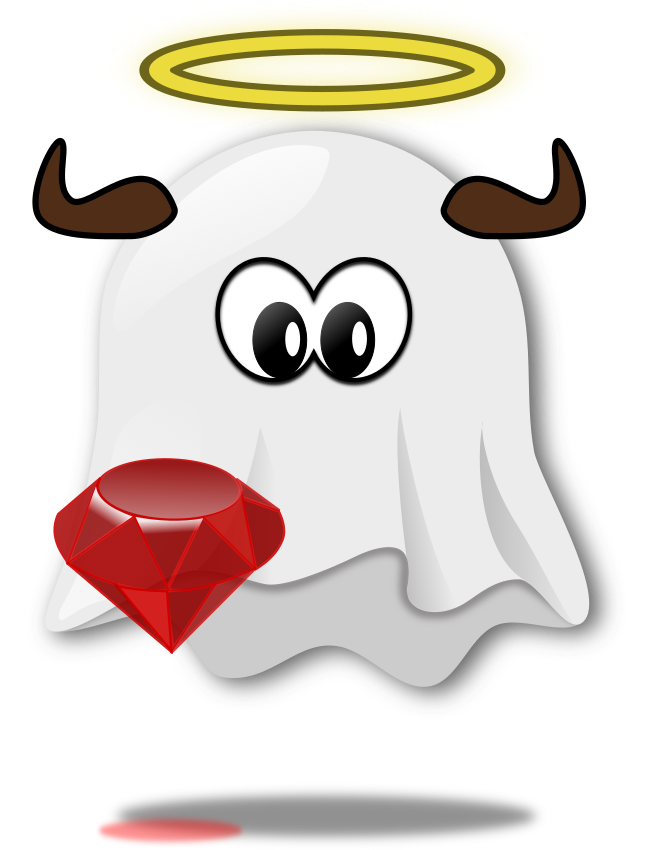
ruGhost - a Ghost to auto complete Ruby programs
#Ruby #programming #ArtificialIntelligence #MachineLearning #NLP #NaturalLanguageProcessing
5 Likes
1 Shares

ruGhost - a Ghost to auto complete Ruby programs
#Ruby #programming #ArtificialIntelligence #MachineLearning #NLP #NaturalLanguageProcessing
I am creating Ruby A.I autocompletion assistant
https://youtube.com/watch?v=8ufns58hr6k
#ruby #programming #software #MachineLearning #ArtificialIntelligence
Wanna brag a little =)
My PR for bundler/rubygems got merged!
It's tiny but still that's so cool when your improvements go upstream, especially for "low level" stuff like the package manager everyone uses in the Ruby world.
And +1 into my collection of projects I've contributed to (probably should keep the list)
I couldn’t say why, but I recently had the strong urge to host my own diaspora✻ pod again.
Around eighteen months or so ago I got a docker instance running after a fashion that ran diaspora✻ but it was flaky to say the least, and I wasn’t happy with the lack of control I had over it. I’d had a look at the instructions for getting one to run natively and had decided that a docker instance would be the easier option. In the event I did something really stupid and managed to hose the installation and gave it up as a bad job.
So in more recent weeks I had another look at hosting my own pod and in this new light, it didn’t look all that hard to do. So I spun up an Ubuntu 22.04 server1 on VMWare Fusion on my MacBook and had a go…
I get bothered by "wasting" bits when I program. For instance, I have this data that consists of a #string of two characters, we'll call them and x and o, the letters, such that the string is just: xxxxxxxxoooxxxxxxxxooooxxxxxxxxxxooooo. And then I do things with it. In #Ruby. This is all in Ruby. It bothers me that I store and manipulate that data, which is binary as ASCII (or internally, for all I know, Ruby might me working on wchars? I don't know). I can operate on it as a string of flipping integers as well. So, the above string could be expressed as an array of integers: "x", 8, 4, 9, 5, 11, 5 (I didn't count, but it's something like that.)
These all end up being huge strings. What I am doing is generating images off of these strings and the dimensions of the images change. So, for instance the first image might be 1,440 elements wide by 365 elements tall. The second will be 1,441 elements wide by 364. And the third 1,442 elements wide, and so on. There's a lot of slow data skewing going on. I am #skewing the data, basically. And then treating the skewed data as if it is not skewed. I have my reasons. This involves a lot of up and down scaling of the data. So if my data starts out as 144 in width. I will upscale it to 1,440, skew it at 10× scale, and then downscale it back to the original scale and present it that way.
So in memory, because I am operating on bytes, the #data ends up being huge (by my reckoning, which is very eighties in its origin. I don't like having 60 megabyte things out there, my first computer had 64K of memory). So I want to work on the data as bits. I am such a moron.
Hello All,
I am modifying my ruby book I Love Ruby for Ruby 3 era, I have written about the following sections:
One can get the book here https://i-love-ruby.gitlab.io/ or https://cliz.in/ilr
I would be happy to receive suggestions to improve this book so that I can make it better and clear to beginners.
Diaspora you enlighten and delight me,
with words and ideas free to flow,
my mind infinitely flows to and fro.
No politics, no money, no profit of any kind.
Diaspora, you are a vestige for my mind.
Thank you Diaspora developers, Podmins and Diaspora community
Updated Structs & OpenStruct, added sections #Rubocop and running Ruby in #Jupyter in my book I Love Ruby. Get it here. https://cliz.in/ilr